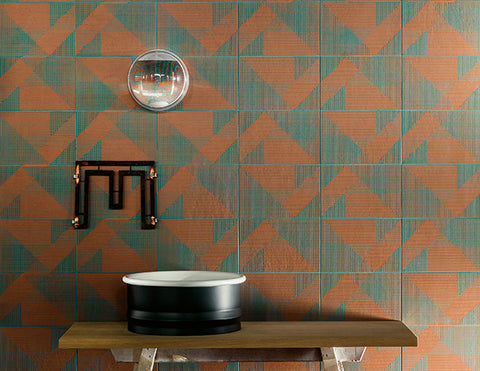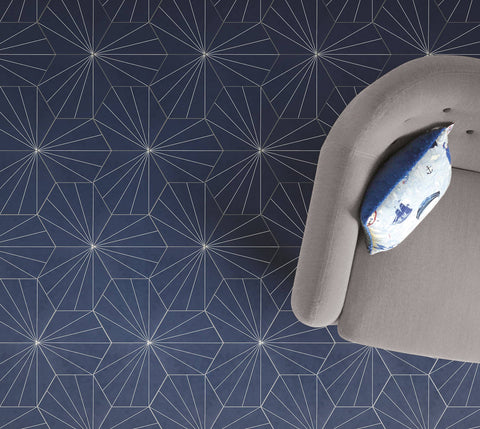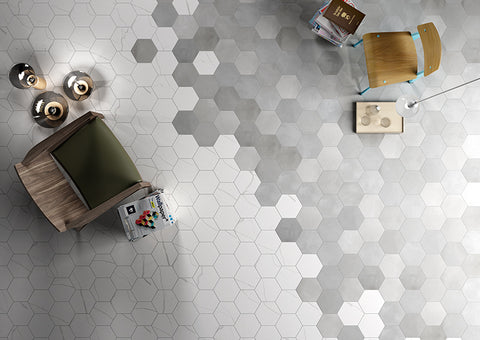
(Tierras - Turquoise Grout)
Grout should be one of the most important considerations of your tile project and something you think about when you choose your tile. Yet it frequently tends to be a last-minute consideration and a choice left up to your contractor. So here we answer some of our clients’ most frequently asked tile questions on the subject to help you make an informed decision.
How do I choose a grout color?
When selecting a grout color, if you’re looking for a cohesive look, consider a color that closely matches your tile. To achieve a picture-framed or grid look, consider a shade lighter or darker. Or if you’re looking for the grout to be a significant part of the design, consider a completely contrasting color, such as black grout with white tile. Some recent tile trends also show pop colors being used for grout for a look that really contrasts with the tile. It’s a bold move, so be sure that’s a look you want before going that route!

(Electra Grande - White Grout)
What type of grout should I use for my bathroom tile installation and why?
The most common type of grout is cementitious grout with latex poymer additives, sanded or unsanded. Unsanded grout with smoother texture, is used for joints of less than 1/8”. Sanded grout that has fine sand particles is typically meant for joints of 1/8” or wider.
For a DIY project, cementitious grout will be the easiest to mix and apply. Depending on conditions, cement-based grout has a good amount of working time before hardening, and cleaning excess grout is fairly easy. When using cement-based grout, you simply mix with water per the ratios outlined by the manufacturer.

What are some of the grout types I should stay away from?
Epoxy grouts, for one, are used when extra protection from acids and grease is needed, as in commercial kitchens. Epoxy grouts have epoxy resin, silica fillers, color pigments and hardeners. It consists of 2 to 3-part components that need to be mixed exactly per instructions. For an inexperienced installer, if not used properly, it can harden quickly and leave residues that are difficult to remove.
Resin-based grouts are also multi-part components that can be tricky to work with and clean.
How do I know which brands will work best for my tile?
It’s always best to choose a grout made by the same manufacturer as the adhesive or thin set mortar being used for the tile, for compatibility. Some of the brands popular with contractors are Laiticrete, Mapei, Custom Building Products, Tec, Bostik, etc.
So there you go. A simple guide. And now you know all about grout.

